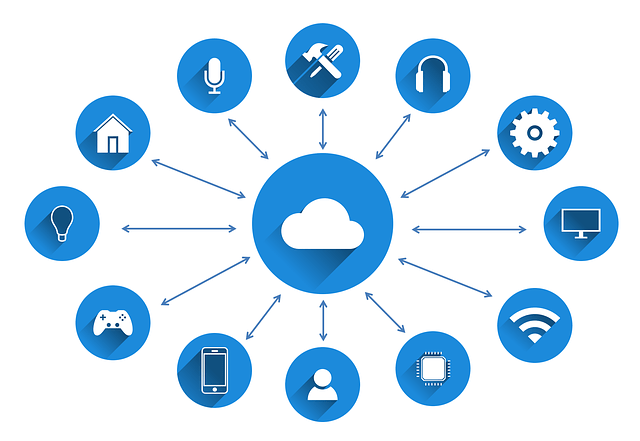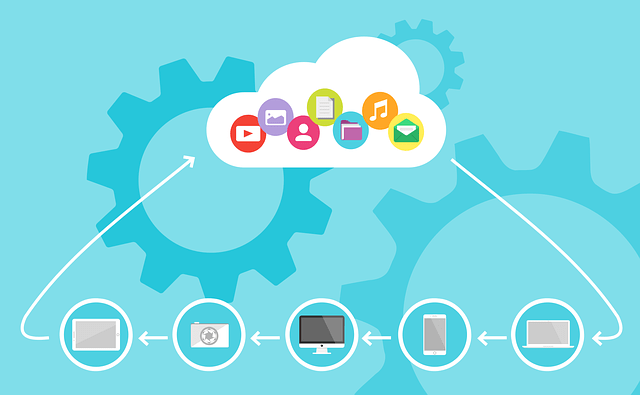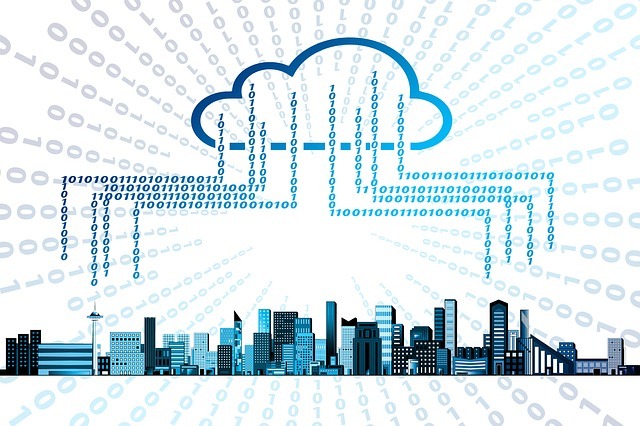Cloud ERP services are quickly becoming the preferred choice for small businesses that want an enterprise-level business management solution without purchasing and maintaining expensive software. Cloud ERP providers offer a range of benefits that make their solutions more cost-effective and easier to use than traditional on-premise solutions.
Let’s explore some of the top cloud ERP services available today. We will also provide you a brief overview of each platform’s key features and what sets them apart from other cloud ERPs.
What are Cloud ERP Services?
Cloud ERP services are a group of server-based applications that help businesses manage their operations and financials. Cloud ERP services offer the same functionality as traditional on-premises software, but they are hosted by a third party in a secure data center instead of being installed on your own local servers.
Cloud vs. On-Premise Solutions
When choosing an ERP system, the cloud or on-premise option is an important decision. Here are some pros and cons of each:
On-Premise Solutions
Pros
- Control
On-premise solutions offer the greatest flexibility when it comes to customization, security, and scalability. Because you control the hardware and software, you have more control over what happens with your data.
- Security
Since your data is stored locally, you can create security policies that make sense for your business. You also have complete control over who has access to what information.
- Scalability
On-premise solutions are easy to scale as you grow — just add more servers or storage space.
Cons
- Cost
If you’re using an on-premise solution, it’s likely that someone else owns the hardware (or at least the servers). You’ll probably be paying them a monthly fee just to use their hardware — which means higher costs for your business.
In addition to paying for server space, there are other costs associated with an on-premise solution, including periodic maintenance fees, licensing fees for any software that is not open source, networking equipment costs, additional administrative staff salaries, etc.
Cloud ERP Solutions
Pros
- Shareability
Cloud ERP systems are hosted on the internet and can be accessed from anywhere. This allows you to easily share data across your company’s employees and branches.
- Fewer Upfront Costs
You don’t have to buy hardware or software upfront—you pay only for what you use as needed.
- Offers Real-time Data Analytics
Finally, most cloud ERP solutions offer additional features such as real-time data analytics and mobile app access that aren’t available with on-premise systems.
- Safety
You also won’t have to worry about losing data if something happens to your computer – it will always be safely stored on their servers, where it can easily be accessed at any time from any location.
Cons
- Ownership
When you use a cloud-based ERP, you don’t own your software. Updates may be implemented without warning, and your employees might need additional training to get accustomed to them.
- Unexpected Costs
The cost of cloud ERP solutions can be problematic. That’s because these solutions are modular, meaning you need to activate more modules to get more features, and you need to pay more money if you use the software for an extended period.
- Internet Issues
Last but not least, if you’re using a cloud ERP system, you must ensure your internet connection is stable. To access the system, you must have a reliable internet provider.
Types of Cloud ERP
Cloud ERP has come a long way since it first came onto the scene, and today’s options have expanded beyond simple SaaS. There are now a number of different types of cloud ERP services that can be useful for businesses looking to streamline their workflows and make better use of resources.
1. SaaS
The most common type is SaaS (Software-as-a-Service). With this model, the company selling the software handles all updates and maintenance while you simply pay by subscription to use the program on your computer or other device. This gives you access to an always-current version of the software without having to worry about hardware costs or system administration overhead. But it also means that if your business needs more control over how things run than what’s offered by a typical SaaS platform, another option may be better suited for you.
2. PaaS and IaaS
The next two categories are PaaS (Platform-as-a-Service) and IaaS (Infrastructure as a Service). These services provide not only access to applications but also the underlying resources needed for them (think storage space, databases, load balancers) so companies don’t have to go through complex setup processes themselves when starting out with new technology like this one.
3. Hybrid
The final category is hybrid. Your company gets both on-premise versions as well as cloud versions but maintains some level of control over which pieces reside where. For example, they’d rather keep certain sensitive data on private servers instead of storing them remotely in someone else’s machines.
Benefits of Cloud ERP Services
There are a number of benefits of using cloud ERP services, including:
Accessibility
Cloud ERP allows users access to their data from anywhere in the world with an Internet connection, which means that employees can work from home or while traveling without having to worry about network issues or system downtime.
Reduced IT Costs
Cloud ERP services use virtualization technology that has been developed over the last decade, making it possible for companies to cut back on their hardware costs while simultaneously improving performance speeds and capabilities. This also leads to reduced downtime, maintenance requirements, and training costs associated with these systems.
Upgrades
Cloud ERP services allow users to upgrade their software as needed without having to purchase new licenses or hardware upgrades; they simply pay an upgrade fee, and the new features appear within minutes.
Ease of Use
Cloud-based applications are easy to use because they’re accessible through any web browser or smartphone app. Businesses can use this technology at home or in the office without having to install anything on their computers or networks.
Best Cloud ERP Services
Here is a list of the best cloud ERP services to choose from:
1. NetSuite ERP
NetSuite ERP is a cloud-based ERP solution designed to help businesses of all sizes manage their operations and growth. NetSuite offers a full suite of business management software that helps you run your business more efficiently.
NetSuite’s powerful new approach to CRM combines the best of two worlds: the power of traditional, in-depth CRM with the simplicity and flexibility of cloud computing. Whatever your industry or size, NetSuite can fit your needs with solutions for Customer Relationship Management (CRM), e-commerce, Professional Services Automation (PSA), Supply Chain Management (SCM), Financials & Accounting, and Manufacturing & Operations Management (M&OM).
2. Acumatica
Acumatica is a cloud-based ERP solution used by small and medium-sized businesses. The solution provides a single platform for business management and reporting. It can be accessed from anywhere at any time, making it an ideal choice for companies that don’t have brick-and-mortar offices.
Acumatica is available in three deployment models: On-Premises, Cloud Hosted, and as an Azure Marketplace app (via the Microsoft Azure Marketplace).
3. Oracle ERP Cloud
Oracle ERP Cloud is a cloud-based ERP solution that enables you to leverage the cloud to not only meet the demands of today but also to prepare for tomorrow. Oracle ERP Cloud provides comprehensive and enterprise-class capabilities that help your organization increase efficiency, improve collaboration and gain greater visibility into your business.
4. SAP S/4HANA Cloud
SAP S/4HANA Cloud is a business suite that offers a set of cloud-based applications designed to work together. The suite consists of SAP S/4HANA Finance, SAP HCM, and SAP S/4HANA Production. It has been designed specifically for small and medium-sized businesses (SMBs) with fewer than 5,000 employees.
As such, you do not need to purchase hardware or software upfront but can instead pay as you go according to your needs.
5. Rossum
Rossum is a cloud-based ERP solution appropriate for small and medium-sized businesses. It’s also a good fit for companies with complex ERP needs.
Rossum can help your company with its supply chain management, forecasting, inventory management, human resources, and finance functions. However, this software has some limitations: It won’t work well if you are looking for an accounting solution or a system to handle multiple currencies in an international business environment.
6. Microsoft Dynamics 365 Business Central
Microsoft Dynamics 365 Business Central is another cloud-based ERP solution built for small and midsize businesses. The system helps you manage your business across all areas, including finance, sales, service, marketing, and operations.
It’s designed to help you make smarter decisions by providing access to real-time information—so you can track the performance of your organization’s day-to-day operations as well as its overall health.
7. Sage Intacct
Sage Intacct is cloud-based accounting software that offers everything you need to run your business. The platform allows users to access financial information anytime and anywhere.
The cloud-based platform provides several accounting tools, including inventory management, multiple sales tax computations, bank reconciliation, and multiple currency support. Their enterprise-grade security protocols and powerful analytics engine will protect your company’s financial data.
Sage Intacct eliminates the need for manual data entry, which can lead to errors and inaccuracies in your revenue projections. In addition, it helps you to stay compliant with tax regulations so that you won’t be forced to answer questions from authorities about your sales taxes.
All in all, whether you’re a single-user small business or a large multinational corporation, Sage Intacct can help you manage your finances and make data-driven decisions with ease.
8. BizAutomation
BizAutomation is a cloud-based ERP software designed specifically for small and medium-sized businesses. It’s an affordable solution that is easy to use and implement, making it the perfect choice for both new startups and established companies.
BizAutomation has specific features designed with SMBs in mind, including one-stop shopping (you can pay bills, track inventory levels, and manage sales all in one place), tight integration with third-party applications (like accounting software), customizable reports (so you can see exactly what you need), and advanced analytics tools.
9. Scoro
Scoro is a cloud-based ERP solution that provides CRM, inventory management, and accounting. It’s a great ERP solution for small and medium-sized businesses because it’s easy to use and can be accessed anywhere with an internet connection.
Scoro is similar in some ways to Zoho One — they are both cloud-based ERP solutions that provide services like CRM, inventory management, accounting, and more. However, Scoro has fewer features than Zoho One, but it is easier to use.
10. Kechie ERP
Kechie ERP is a cloud ERP solution for small to medium-sized businesses. It uses a SaaS (software as a service) model, which means the solution is hosted in the cloud and accessed via a web browser against a subscription fee.
Kechie ERP provides CRM, inventory management, manufacturing and warehouse management, accounting and financials, sales order & quotation management, point of sale (POS), e-commerce, and more. All features are available on all devices, including desktops/laptops running Windows or macOS, as well as smartphones running iOS or Android operating systems.
Conclusion
Plenty of options are available if you’re looking to get started with cloud ERP. We hope this article has helped you narrow down your search and learn more about the different types of cloud ERP solutions available in the market today.



